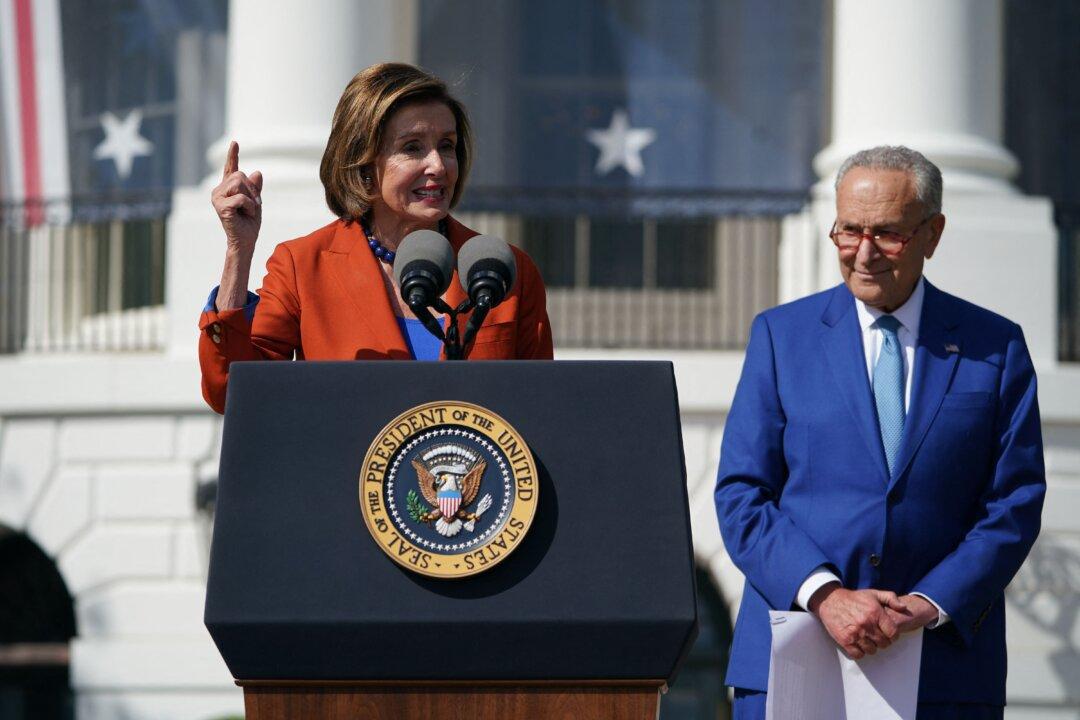House Speaker Nancy Pelosi (D-Calif.) has defended the trillions of dollars in COVID-19 pandemic aid passed by Democrats amid claims by Republican lawmakers and experts that it fueled the current cost-of-living crisis.
In an interview with CBS’ “Face the Nation” on Sunday, when asked if she had any regrets over the unprecedented levels of fiscal and monetary spending, Pelosi said the funding was essential to ensure that people survived during the pandemic.




